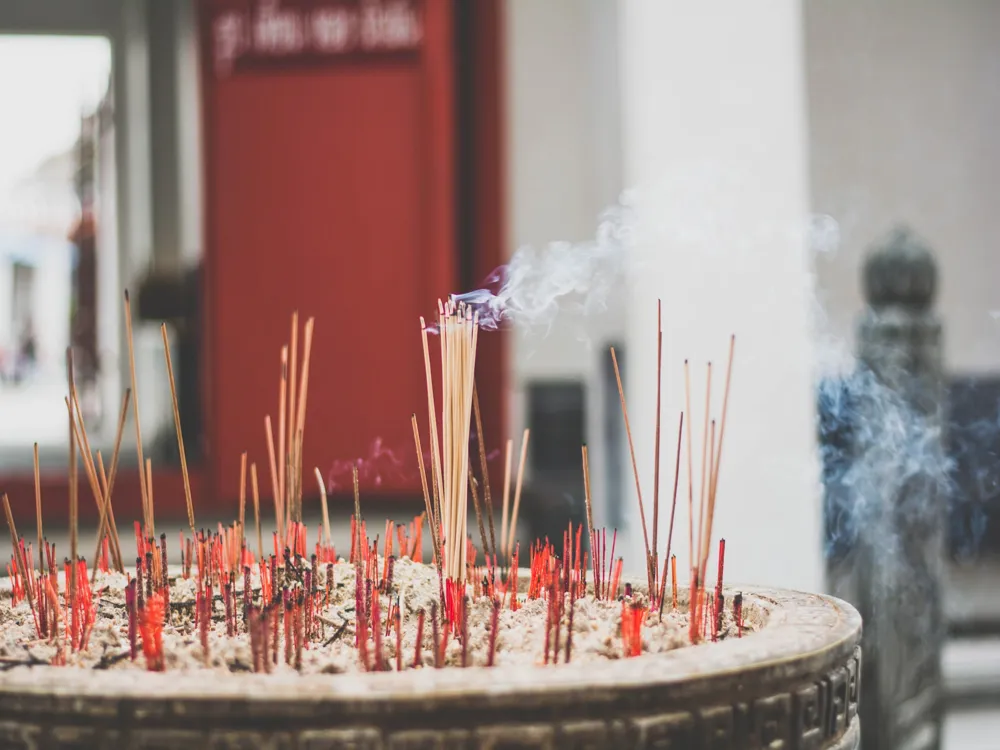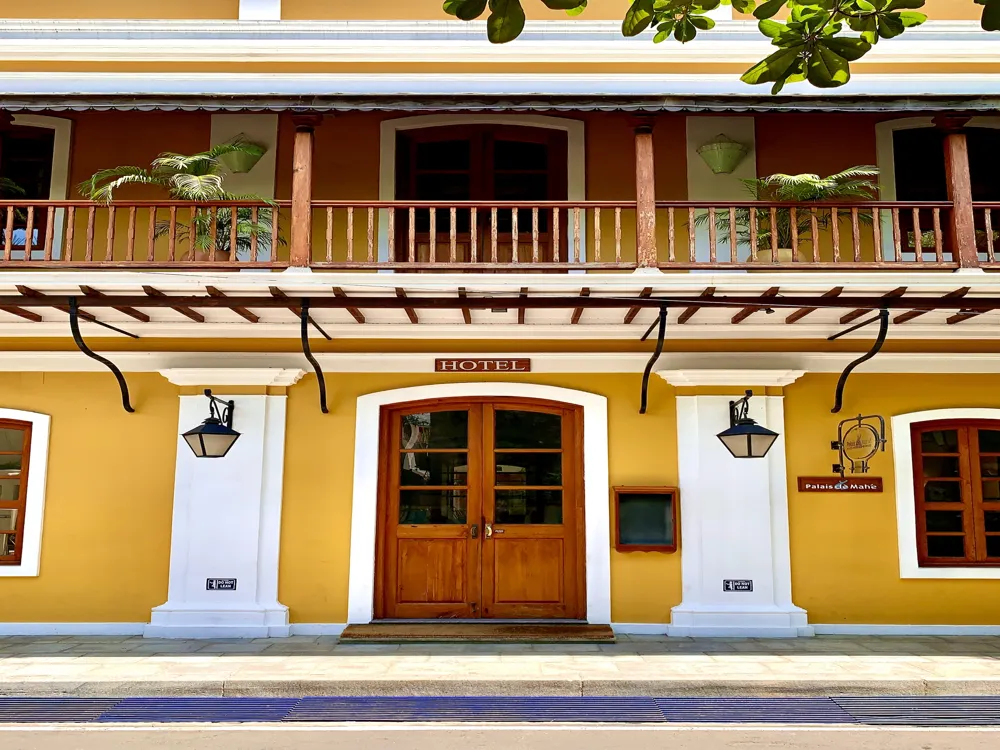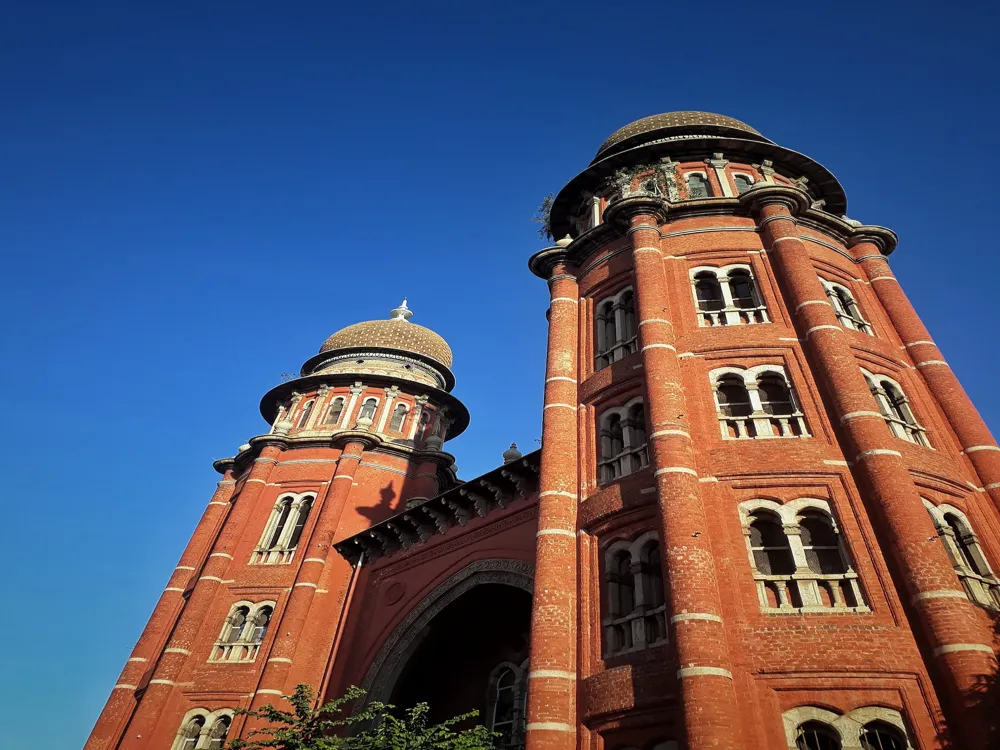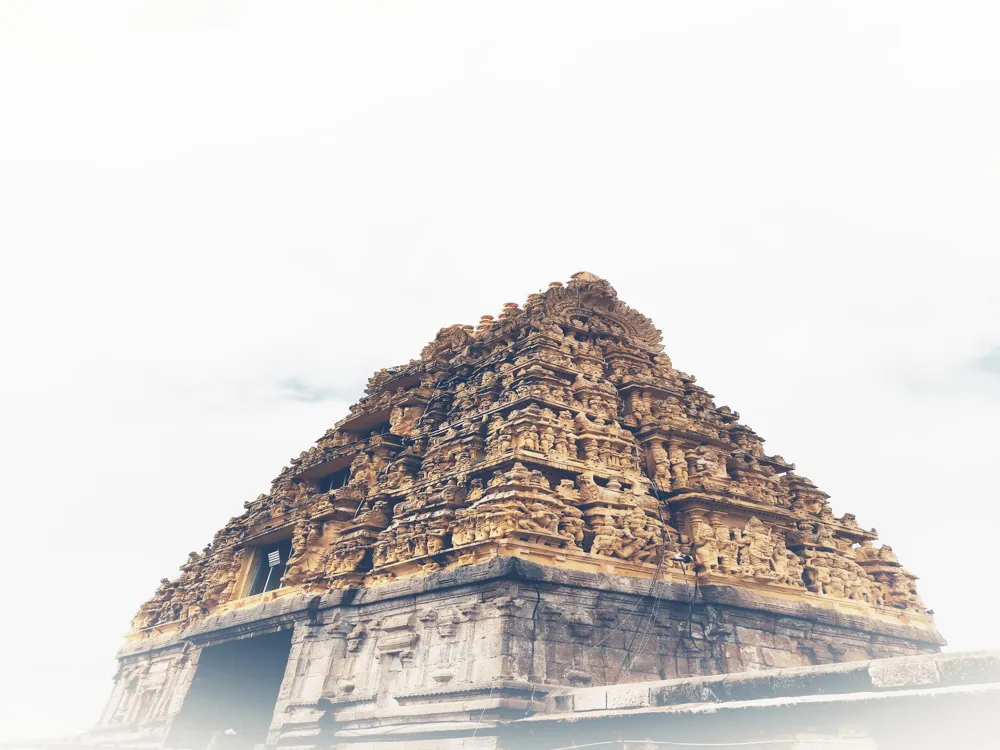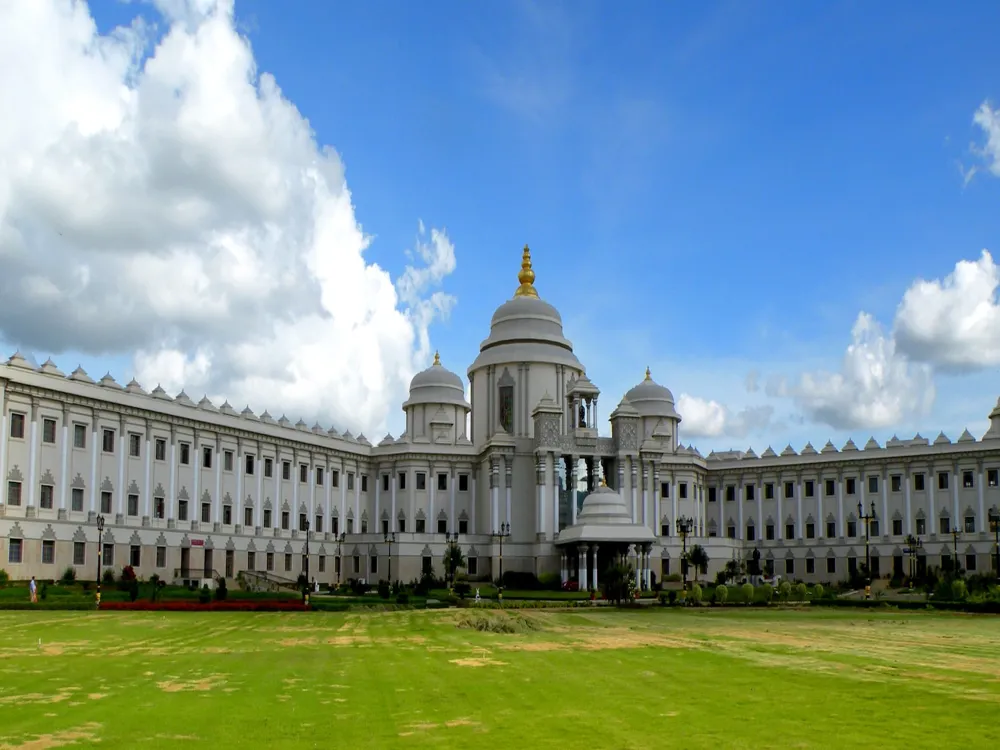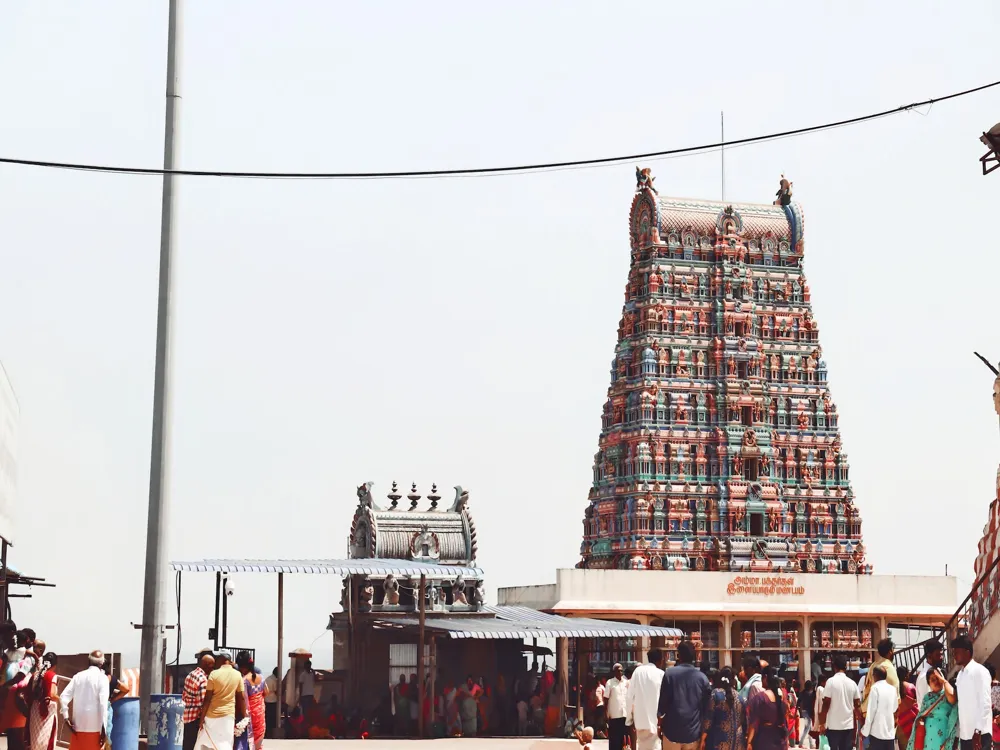The Kamakshi Amman Temple, a magnificent emblem of historical and spiritual significance, stands proudly in the ancient city of Kanchipuram in Tamil Nadu, India. This temple, dedicated to Goddess Kamakshi, a form of Parvati, is not just a religious symbol but a repository of culture, art, and history. It is part of the famous Kanchipuram trio, which also includes the Kailasanathar and Ekambareswarar temples, representing Shiva's three forms. The Kamakshi Amman Temple, believed to be built by the Pallavas, underwent numerous renovations under the Cholas and the Vijayanagar kings. This sacred site is revered for its rich legend and mythology. According to Hindu beliefs, Goddess Kamakshi, the divine consort of Lord Shiva, performed penance, standing on one leg, to win Shiva's heart here. The temple's sanctum sanctorum houses the enchanting idol of Goddess Kamakshi, seated in the Padmasana (lotus) posture, symbolizing peace, prosperity, and harmony. Surrounding the main deity are shrines dedicated to various gods and goddesses, adding to the temple's spiritual aura. The Kamakshi Amman Temple is not just a place of worship; it's a journey through time, showcasing architectural brilliance and cultural depth. It holds an integral place in the hearts of devotees and history enthusiasts alike, attracting thousands of visitors every year. The temple also plays a central role during the celebrated Kanchipuram festival, where rituals, music, and dance elevate the spiritual experience. The architecture of the Kamakshi Amman Temple is a splendid example of Dravidian style, reflecting the ingenuity and skill of ancient Indian artisans. The temple complex, adorned with towering gopurams (gateway towers), intricate carvings, and majestic pillars, showcases the architectural grandeur of the bygone eras. The main tower at the entrance is an awe-inspiring structure, richly decorated with sculptures of gods, goddesses, and mythical creatures. As you step inside, the vast temple courtyard welcomes you, leading to the sanctum sanctorum. The inner sanctum, with its gold-plated roof, is a sight to behold, radiating a divine glow. The walls and pillars of the temple are embellished with exquisite carvings, narrating stories from ancient scriptures and Hindu mythology. The temple's mandapams (halls) are architectural marvels in themselves. The intricately carved pillars in these halls depict various deities and mythological scenes, capturing the essence of Hindu culture and religion. The Stambha Mandapam, also known as the 100 Pillar Hall, is particularly noteworthy for its sculptural magnificence. The Kamakshi Amman Temple also features a sacred water tank, known as the Panch Ganga, believed to have medicinal properties. The tank is an integral part of the temple's religious rituals and adds to the serene ambience of the premises. The temple's layout follows the traditional principles of Vastu Shastra and Agama Shastra, ensuring a harmonious balance of energy and aesthetics. The orientation, dimensions, and spatial arrangement of the temple structures are meticulously planned to evoke spiritual reverence and tranquility. The fusion of art, spirituality, and architecture makes the Kamakshi Amman Temple a symbol of India's rich cultural heritage. Its architectural splendor not only serves as a place of worship but also as a testament to the artistic mastery of ancient Indian craftsmen. Visitors are advised to dress modestly, adhering to the temple's traditional dress code. It is recommended to wear conservative clothing covering shoulders and knees. Devotees should maintain a respectful demeanor within the temple premises and avoid loud conversations. The temple is open at specific times during the day, usually in the morning and evening. It's important to check the current timings before planning your visit. Participating in the temple's rituals, such as the Aarti, can be a spiritually enriching experience. Photography is usually prohibited inside the main temple area, especially near the sanctum sanctorum. Visitors should respect these rules and refrain from taking photos in restricted areas. Understanding and respecting local customs, such as removing shoes before entering the temple and offering prayers, enhances the visit. Engaging with local guides or priests can provide deeper insights into the temple's history and rituals. The temple provides facilities like shoe storage, restrooms, and drinking water. There are also small shops around the temple selling religious artifacts, books, and snacks. It's advisable to carry some cash, as not all vendors may accept digital payments. Kanchipuram is well-connected by road and rail, making the Kamakshi Amman Temple easily accessible. The nearest airport is Chennai International Airport, about 72 kilometers away. From Chennai, one can hire a taxi or take a bus to Kanchipuram. The town also has its own railway station, with frequent trains from major cities like Chennai, Bengaluru, and Hyderabad. Once in Kanchipuram, auto-rickshaws and local buses are available for local transit, making it convenient to reach the temple. Read More:Overview of Kamakshi Amman Temple, Kanchipuram, Tamil Nadu
Architecture of Kamakshi Amman Temple
Tips When Visiting Kamakshi Amman Temple
Dress Code and Conduct
Temple Timings and Rituals
Photography Restrictions
Local Customs and Etiquette
Facilities and Services
How To Reach Kamakshi Amman Temple
Kamakshi Amman Temple
Kanchipuram
Tamil Nadu
NaN onwards
View kanchipuram Packages
Weather :
Label : Must Visit
Tags : Temple
Timings : 5:30 AM - 12:15 PM, 4:00 PM - 8:15 PM (Friday till 9:30 PM and Pournami day till 10:30 PM)
Time Required : 2-3 hrs
Entry Fee : No entry fee
Planning a Trip? Ask Your Question
Also Refered As:
Kanchi Kamakshi Temple
Kanchipuram Travel Packages
View All Packages For Kanchipuram
Top Hotel Collections for Kanchipuram

Private Pool

Luxury Hotels

5-Star Hotels

Pet Friendly
Top Hotels Near Kanchipuram
Other Top Ranking Places In Kanchipuram
View All Places To Visit In kanchipuram
View kanchipuram Packages
Weather :
Label : Must Visit
Tags : Temple
Timings : 5:30 AM - 12:15 PM, 4:00 PM - 8:15 PM (Friday till 9:30 PM and Pournami day till 10:30 PM)
Time Required : 2-3 hrs
Entry Fee : No entry fee
Planning a Trip? Ask Your Question
Also Refered As:
Kanchi Kamakshi Temple
Kanchipuram Travel Packages
View All Packages For Kanchipuram
Top Hotel Collections for Kanchipuram

Private Pool

Luxury Hotels

5-Star Hotels

Pet Friendly










